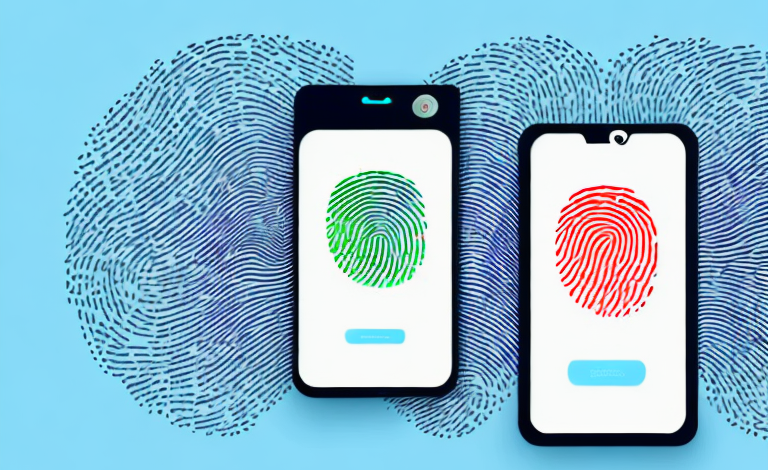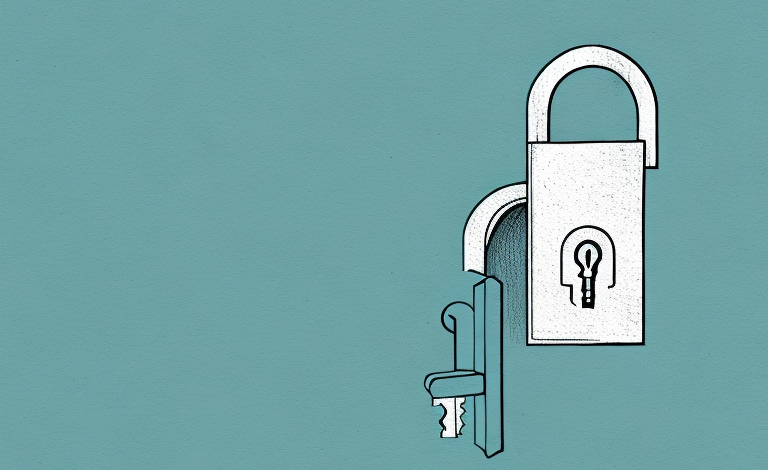Most modern smartphones today have a built-in fingerprint scanner, providing users with a quick and secure way to unlock their devices. However, many users may be concerned about whether or not using this feature can drain their battery life. In this article, we will take a deep dive into the world of fingerprint scanners and battery consumption, providing comprehensive answers to all your questions.
Understanding how fingerprint scanning works
Before we discuss how a fingerprint lock can affect your phone’s battery life, it’s important to understand how this feature works. A fingerprint scanner operates by capturing an image of your fingerprint and using it to compare against a previously saved image. If there is a match, the phone is unlocked; if not, the device remains locked.
The process of capturing an image of your fingerprint involves the use of a sensor that detects the ridges and valleys on your finger. These sensors can be optical, capacitive, or ultrasonic, and each type has its own unique way of capturing the image. Once the image is captured, it is converted into a digital template that is stored on the device. This template is then used for future comparisons when you try to unlock your phone with your fingerprint.
Battery consumption concerns of fingerprint locks
Fingerprint scanners can consume battery power – this much is true. However, the amount of power usage is minimal, and should not significantly impact your phone’s battery life. Typically, the power consumption of a fingerprint scanner is around 0.5% to 1% of your phone’s total battery capacity. While not entirely insignificant, this is not enough to cause any real concern.
It is important to note that the battery consumption of a fingerprint scanner may vary depending on the device and the frequency of use. If you use your fingerprint scanner frequently throughout the day, it may have a slightly higher impact on your battery life. However, most modern smartphones are equipped with efficient power management systems that can optimize battery usage.
Additionally, some fingerprint scanners may have a feature that allows you to turn them off when not in use, further reducing their impact on battery life. It is always a good idea to check your device’s settings to see if this option is available.
Do other smartphone features affect battery life more than fingerprint locks?
In most cases, other features of your smartphone are likely to consume more battery power than using the fingerprint lock. For example, a brighter screen, running multiple apps in the background, and cellular network usage can drain your phone’s battery much faster than using your fingerprint scanner. The difference in power consumption is not even close.
However, it is important to note that the frequency of using the fingerprint scanner can also impact battery life. If you are constantly unlocking your phone with your fingerprint, it may contribute to a faster drain on your battery. It is recommended to use alternative methods of unlocking your phone, such as a passcode or pattern, if you find yourself using the fingerprint scanner frequently throughout the day.
Additionally, the age and condition of your phone’s battery can also affect its overall lifespan. Over time, batteries naturally degrade and may not hold a charge as well as they once did. If you notice that your phone’s battery life is significantly shorter than it used to be, it may be time to consider replacing the battery or upgrading to a new phone.
How to optimize battery usage with fingerprint locks
There are a few easy steps that one can take to optimize battery usage with fingerprint locks. First, ensure that your device is updated to the latest version of its operating system. Updates may contain optimizations that can save power usage for ultrasound and capacitive fingerprint sensors. Second, limit the number of attempts to unlock the phone using the fingerprint scanner, as excessive attempts will require additional power usage. Finally, avoid using your phone in extremely hot or cold temperatures, as this can also impact battery consumption.
Another way to optimize battery usage with fingerprint locks is to disable the feature when it is not needed. For example, if you are at home or in a secure location, you may not need to use the fingerprint scanner to unlock your phone. Disabling the feature when it is not needed can help to conserve battery life.
Additionally, it is important to keep your fingerprint scanner clean and free from dirt and debris. A dirty scanner may require more power to read your fingerprint, which can impact battery usage. To clean your scanner, use a soft, dry cloth to gently wipe away any dirt or debris.
Battery-saving tips for using fingerprint locks
Some additional tips to save battery usage with a fingerprint scanner include using a power-saving mode, turning off background app refresh, reducing screen brightness, and disabling location services. Additionally, you can also reduce the frequency of notifications and turn off haptic feedback. All of these steps can help increase your phone’s battery life and reduce overall power consumption.
Another way to save battery life with a fingerprint scanner is to limit the number of fingerprints stored on your device. The more fingerprints you have stored, the more power your device will use to scan and authenticate them. Consider deleting any unused or unnecessary fingerprints to help conserve battery life.
It’s also important to keep your device and fingerprint scanner clean. Dirt, oil, and other debris can interfere with the scanner’s ability to read your fingerprint, causing it to use more power to authenticate. Regularly clean your device and scanner with a soft, dry cloth to ensure optimal performance and battery life.
Impact of screen size and resolution on battery consumption with fingerprint scanning
Screen size and resolution can also impact battery life with fingerprint scanning, especially as the larger displays and higher resolutions consume more battery power. For example, if you’re using a phone with a larger display, it may require additional power usage to render high-resolution graphics. However, the effect of screen size and resolution on battery life with a fingerprint scanner is typically marginal, so you should not worry too much about it.
It’s worth noting that the type of fingerprint scanner can also affect battery consumption. Optical scanners, for instance, require more power to illuminate the screen and capture an image of the fingerprint. Capacitive scanners, on the other hand, use less power as they rely on the electrical charge of the user’s finger. So, if you’re concerned about battery life, it may be worth considering the type of fingerprint scanner your device uses.
Do different types of fingerprint scanners consume varying degrees of battery power?
There are primarily two types of fingerprint scanners: capacitive and ultrasonic. While both types of scanners operate differently, their overall impact on battery life is about the same. In terms of performance, ultrasonic fingerprint scanners may be slightly faster and more accurate than capacitive ones, but this has little to no effect on their overall battery usage.
However, it is important to note that the battery consumption of a fingerprint scanner also depends on the device it is integrated with. For example, a high-end smartphone with a powerful processor and a large battery may not experience a significant drain in battery life due to the use of a fingerprint scanner. On the other hand, a budget smartphone with a smaller battery and a less powerful processor may experience a noticeable impact on battery life when using a fingerprint scanner.
The impact of software updates on fingerprint scanner battery life
Software updates can have a significant impact on a phone’s overall battery life, including the battery consumption of the fingerprint scanner. Generally, updates can include optimizations to save power usage on the scanner. Therefore, it is crucial to ensure that your phone is updated to the latest version to get the best performance and battery life out of your fingerprint scanner.
It is also important to note that some software updates may have the opposite effect and actually increase the battery consumption of the fingerprint scanner. This can happen if the update includes new features or functionality that require more power from the scanner. In such cases, it may be necessary to adjust the settings of the scanner or disable certain features to conserve battery life.
How to troubleshoot excessive battery consumption by your phone’s fingerprint lock
If you’re experiencing excessive battery consumption from your phone’s fingerprint scanner, there may be an issue with your scanner’s settings or hardware. Some potential solutions include recalibrating the scanner, switching to a different finger, or resetting the phone’s settings. In rare cases, there may be a hardware issue with the scanner itself, in which case, you should contact the manufacturer for assistance.
Another potential cause of excessive battery consumption by your phone’s fingerprint lock could be due to third-party apps that are using the scanner excessively. To troubleshoot this issue, you can check your phone’s battery usage settings to see which apps are using the most battery and disable any that are not essential.
It’s also important to note that using your phone’s fingerprint scanner frequently can contribute to battery drain. If you find yourself unlocking your phone frequently throughout the day, consider using a different method of unlocking, such as a PIN or pattern lock, to conserve battery life.
Conclusion
Overall, using the fingerprint scanner on your phone should not significantly impact your device’s overall battery life. While some power consumption does occur, other features, such as your screen display and applications, are likely to consume significantly more power. By following the tips and recommendations discussed in this article, you can optimize your phone’s battery life while enjoying the added security and convenience of using your fingerprint scanner.
It is important to note that while using the fingerprint scanner may not have a significant impact on your phone’s battery life, it is still important to regularly monitor and manage your device’s power usage. This can include adjusting your screen brightness, closing unused applications, and disabling features such as location services when not in use. By taking these steps, you can ensure that your phone’s battery life remains optimized and that you can continue to use your fingerprint scanner with ease and peace of mind.



